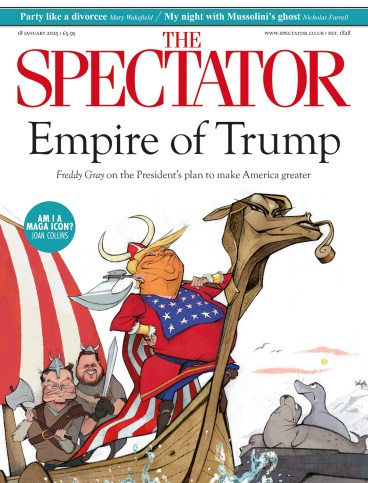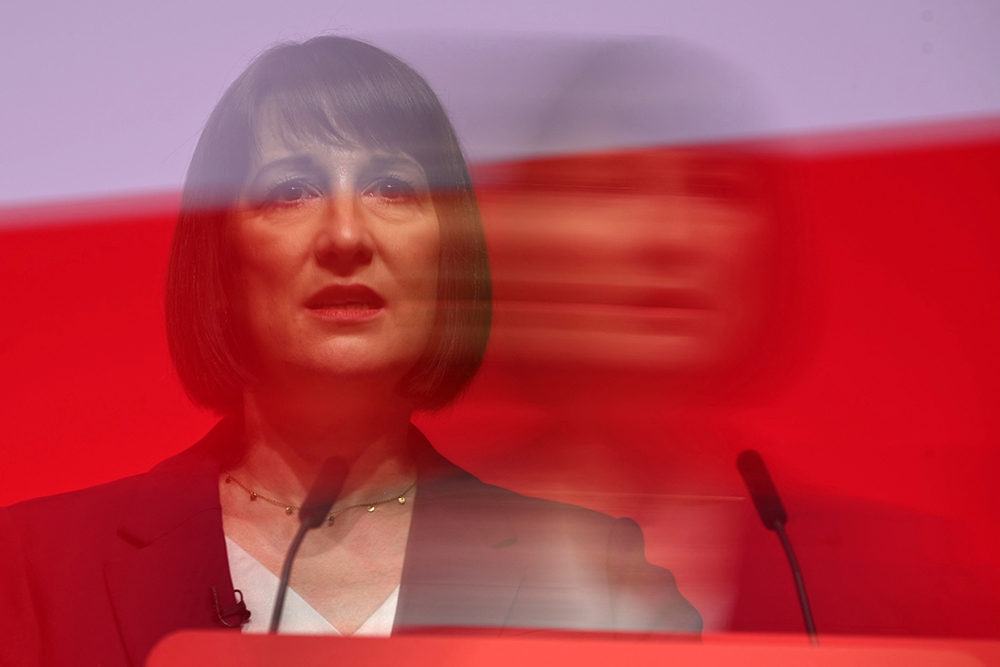
It is some time since I could claim any close acquaintance with the daily skirmishes of workaday Westminster. From risers and fallers on the stock exchange of parliamentary esteem I stand somewhat aside these days: no longer a war correspondent sending back dispatches from the battles between tribes in the febrile atmosphere and smelly carpets of that suffocating fake-gothic palace. Such warfare needs to be reported, but in this I yield to colleagues better placed to report.
It seemed Starmer and Reeves had allowed themselves to be persuaded that what they were not was enough
If I’ve had any useful contribution – if as a commentator I’ve shed any light these past 15-odd years – it has been in spotting new instances of our curiously English readiness to impute talent and virtue in the absence of any evidence for it.
My commentary did wonder aloud why in Gordon Brown a sulky disinclination to communicate should be interpreted as still water that ran deep. It did question what – when the conference backdrop of green trees and scudding clouds was pushed aside – ‘modern’ Conservatism actually meant. It did from the start warn that Boris Johnson was a capering clown with a talent only to amuse. My commentary was early to advise readers that Liz Truss was nuts, and explained urgently that to fillet Robert Jenrick of raging ambition would be to be left with a boneless heap. As a journalist with little talent for fashion in political couture, I hope I can at least spot the absence of clothes.
Which brings us to Rachel Reeves.
It was almost a year ago, in March 2024, that in the service of Times readers I tasked myself mercilessly with reading all 8,000 words of Reeves’s Mais Lecture. I read them twice, and then again. This was an important City occasion, a prestigious one, and an opportunity for a politician who everyone knew would be Britain’s next chancellor to set out her underlying economic philosophy.
She knew that. She was trying hard. Her text betrayed intense, almost agonised drafting. Every sentence was attended by cautious qualification; every opinion by careful reservations; every commitment festooned with so many strings attached that the whole more resembled a tangle than treatise. I read and reread, finding comprehensive coverage of a wide terrain, but no evidence of a presiding intellect. If there was anything Reeves did want to say, it was that she had no ideology – but she overshot, leaving the impression that she had no ideas.
I wrote as much. If any other commentator at the time did, such commentary escaped me. The speech was (quietly) well received. The mood then was to admire Keir Starmer’s team’s insistently signalled departure from Corbynism. The overwhelming sentiment was approval mixed with relief: relief that Sir Keir had chosen as his principal lieutenant a woman who was plainly – almost ostentatiously – not mad, and certainly no Marxist.
Almost all approving commentary (and commentary was overwhelmingly approving) revolved around what this Labour opposition was not. Unwittingly, Jeremy Corbyn had done his successor an enormous favour: Starmer could be defined by the absence of bad ideas rather than the presence of good ones. Reeves followed suit.
The floundering Conservative administration, too, was helping both of them. Not only would the next government not be Marxist, but it would also not be Tory. Reeves would not be silly. And Starmer himself, plainly an intelligent man and a capable lawyer, would not be stupid.
So many nots. It almost seemed the pair had allowed themselves to be persuaded that what they were not was enough. Labour had thrown off leftist ideology, thrown off anti-Semitism. The electorate would shortly throw off Tory governance. What more was required? Britain was to be freed from its ball and chain, and Starmer had cut Labour’s leftist shackles. Liberated, the country would leap. Sceptical mutterings that it might be helpful if the principal opposition would give us some hint of what in government it would actually do were met by the seductive metaphor of the Ming vase, carried so close now to the finishing line. Labour would tiptoe into government. Those demanding more information about the contents of the vase were missing the point.
As political propaganda this was powerful stuff, and I remind myself (I was in the Conservative Research Department at the time) that Margaret Thatcher was (wisely) persuaded to adopt her own version of the Ming vase strategy before the 1979 general election. The difference was that her vase was not empty: she had a plan. We soon found that out once she had won.
Did Starmer even have a plan? Was Reeves in fact any good? The first question was whispered by some. The second (so far as I know) was never asked, and might have been thought below-the-belt. Since Reeves’s now infamous Budget, I’ve been struck by how many Tory friends have been sheepishly confessing that they voted rather reluctantly for Labour last year because they really were persuaded that Starmer and Reeves would conduct a steady and sensible government. They too had been impressed by the absence of any cause to despair, rather than the presence of any reason to hope.
How will the world of political journalism acquit itself of blame for having trusted too much? I think I know. Commentators will muse sadly on how promisingly Labour conducted itself in opposition, but how Starmer, Reeves et al do not appear to be living up to that promise. They have changed. Commentators were right (in other words) to praise the Labour leadership before the election, just as we are right to criticise it now.
I reply that ‘we’ have been taken for a ride. Where was the evidence of capability, or of any plan? There was never good reason to believe that Labour knew what to do. The Chancellor has not changed: she is now, as she was in opposition, an empty vessel. The Prime Minister has not changed: he is still today, as he was when opposition leader, bereft of ideas. Commentators were too credulous. The emperor never did have any clothes.








Comments